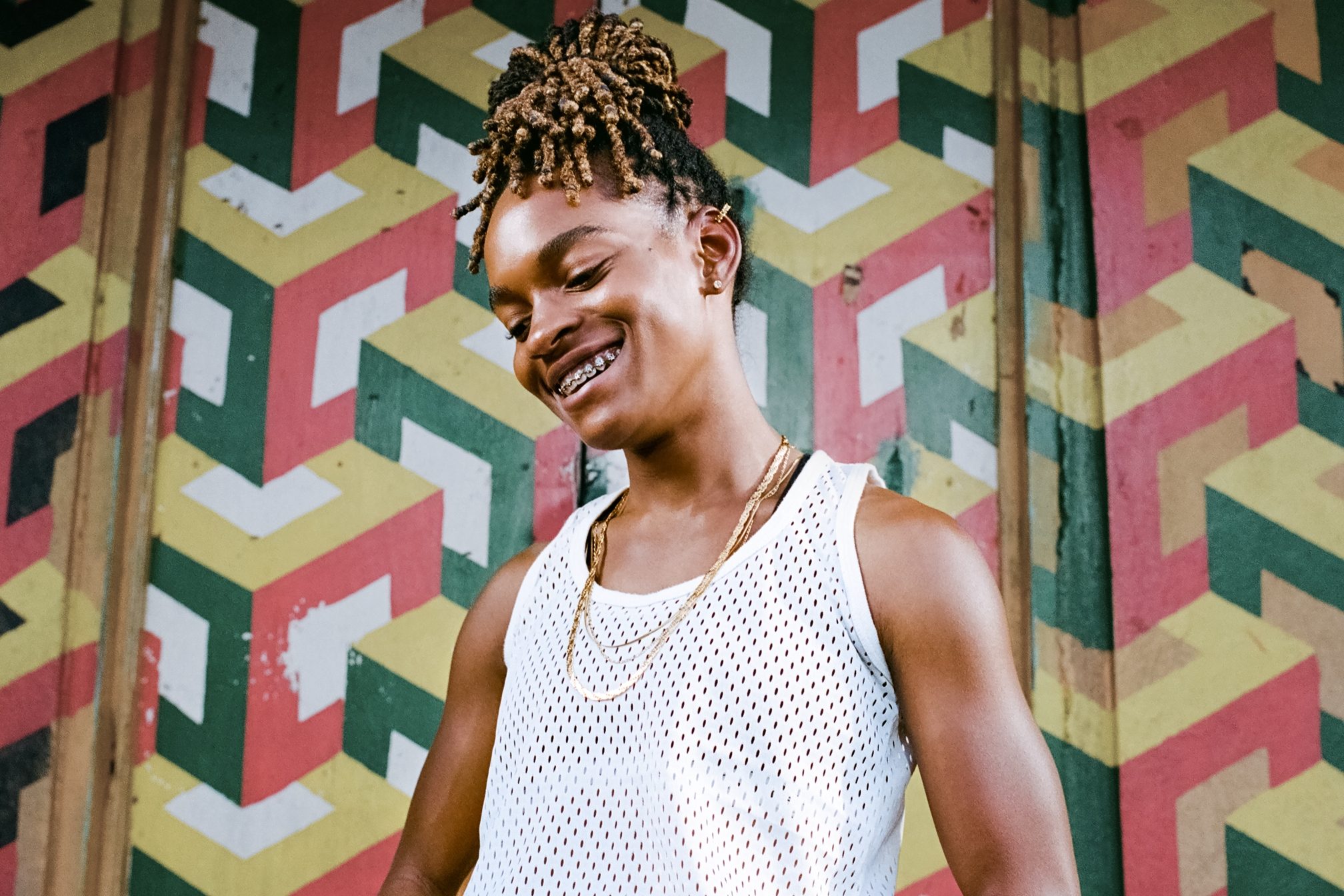 Features
Features
Positive energy: Koffee's uplifting reggae is bringing light to the world
Groundbreaking Jamaican artist Koffee is sending a bold, blissed-out message that transcends the dancefloor
It's dusk and only a handful of days into spring, yet the last rays of sun continue to shoot out across East London amid an unusually sweltering week. On Brick Lane, a heaving mass of reggae and dancehall fans crowd around a tiny unmarked door. Behind sunglasses and expertly styled fits, they clink pints and rums in plastic cups while others burst into applause each time the bouncer emerges, and the music from indoors pumps into the street. He's breaking the news that most of them likely won't get inside tonight to toast their favourite Jamaican artist's hugely anticipated debut album. Still, they continue to show love until the stars pierce the sky, not only because it feels like the past two dystopian springs are finally behind us, but simply because Koffee is back on UK soil.
Inside, under indigo lights, 21-year-old Mikayla Simpson, aka Koffee, is flexing her vocal prowess for a warehouse full of music industry heavyweights. From the first note, the 5-foot artist dominates the room with her signature ease. She works her way through her debut album ‘Gifted’, flanked by two dancers and her live band from Jamaica. Given the vibe outside, her sun-kissed, pandemic anthem 'Lockdown' (created with Popcaan in his studio) hits different. As she sings the lines “Where will we go / When di quarantine ting done and everybody touch road,” the crowd erupts into a groove.
Read this next: Beserk dancehall: How Equinoxx caught the world's attention
Behind elaborate cinnamon braids and diamond-studded braces, she swerves into the title track off her GRAMMY-winning EP ‘Rapture’ and croons the hook, “Koffee come in like a rapture, And everybody get capture / Place lift up like helicopter, ayy. When dem see di lyrical doctor.” iPhone torches ignite as the crowd sings at decibels that hit the ceiling.
Tonight's performance showcases her dexterity with wordplay and proves her abilities to make music that can take people to higher levels. Koffee's future as a formidable force in reggae and dancehall is blazing to new heights, but she's more grounded than ever.

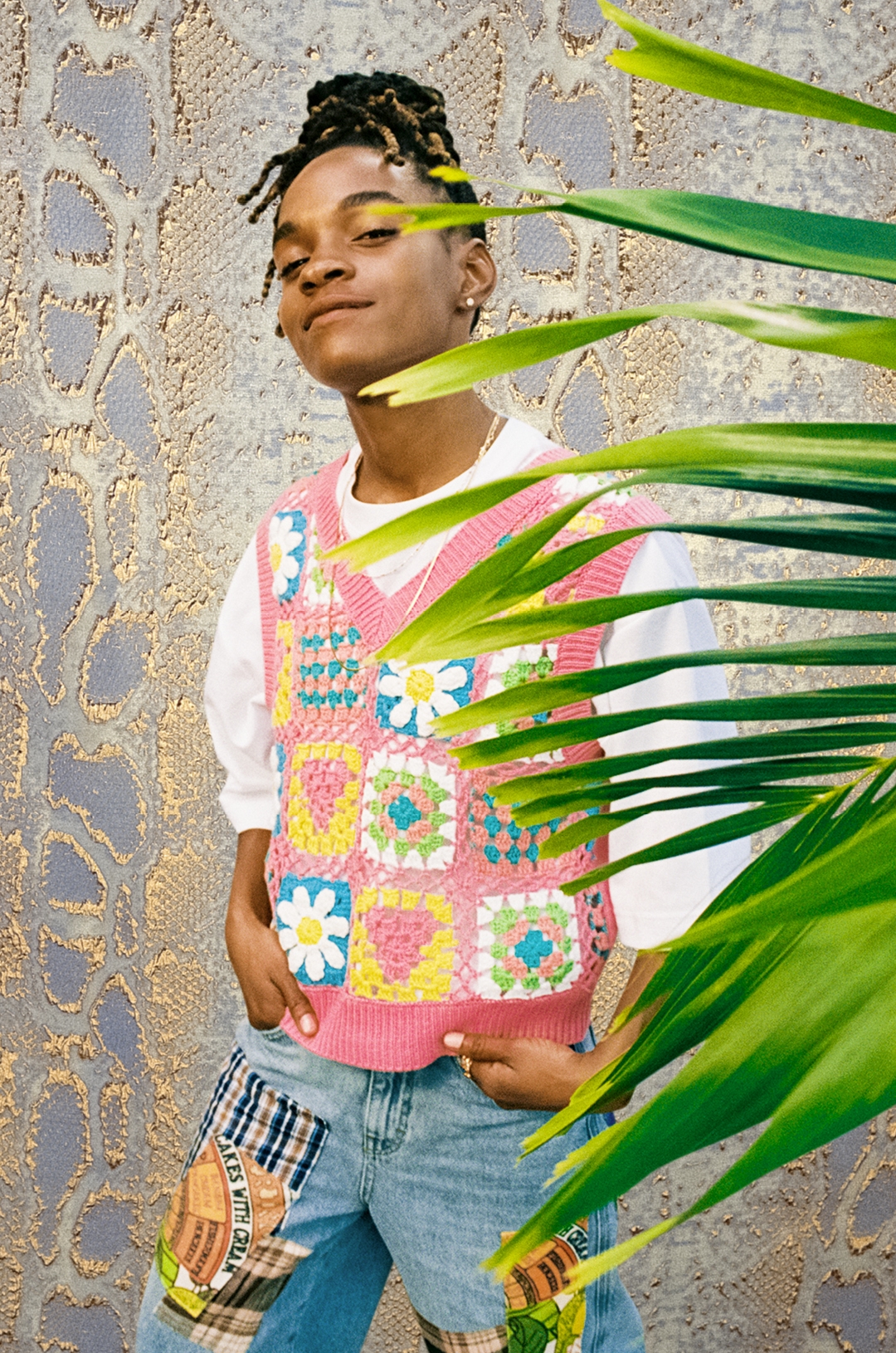
“I want to be authentic: so in the future, with generations gone, people can listen to my music and think, ‘Yeah, this speaks to the time. I feel like I can relate to what was happening’,” says Koffee, her dulcet tones melting from my laptop speakers on a Zoom call a couple of weeks prior to the London launch of her debut album. She's on the other side of the world in Kingston, Jamaica, and her screen's blacked out, but she assures me she's sun-drenched and blissed out. “The message for my debut album, ‘Gifted’, comes from my own personal influences. The things that I've experienced, the climate of the world, the pandemic and the feelings that came with that situation. I wanted to uplift people,” she continues. “I think it's important to inject positive energy into the world and just try to stay on a path that can keep people feeling light. I tend to write from my heart. Things that are true to me, and hopefully music that years down the road I will still enjoy performing and still have a message for the youth.”
Koffee's time on the road thus far has been fast and furious. In less than half a decade, she went from uploading a song for Olympic medallist Usain Bolt on YouTube to her music career skyrocketing. By 18-years-old, she'd inked a deal with a major label. Then in 2019, aged 19, released her five-track dancehall EP ‘Rapture’, which saw her make history as the youngest recipient and first-ever female reggae artist to win a GRAMMY. Since then, she's hit No. 1 on the reggae charts, dropped her first full-length and worked with everyone from Protoje, to Jay-Z, to Kendrick Lamar. As she riffs about leaving a legacy behind in her lyrics, it's mad to conceive how short her musical journey has been given what she's achieved and even more mind-blowing that 15 years ago, music wasn't even a thing she thought to pursue.
Growing up in Spanish Town, Jamaica, Koffee never expected to become an artist. At 14, she even briefly studied to become a pharmacist. “There's even a clip of me saying ‘I want to become an astronaut on live TV’,” she laughs, recalling early childhood ambitions. But Koffee was naturally musically gifted from the outset. She cut her vocal chops in the church choir every Saturday and was raised on a diet of gospel, reggae and lovers rock by her mother, an actress and a Seventh Day Adventist.
“I sang in the church choir at an infant age. I was pretty much born in the church. But no, I never thought I'd make a career out of it. I realised I was enjoying music around age 16, and I explained to my friends that I would probably be a ghostwriter for other artists. They kept encouraging me to do my own thing... and here we are," Koffee laughs.

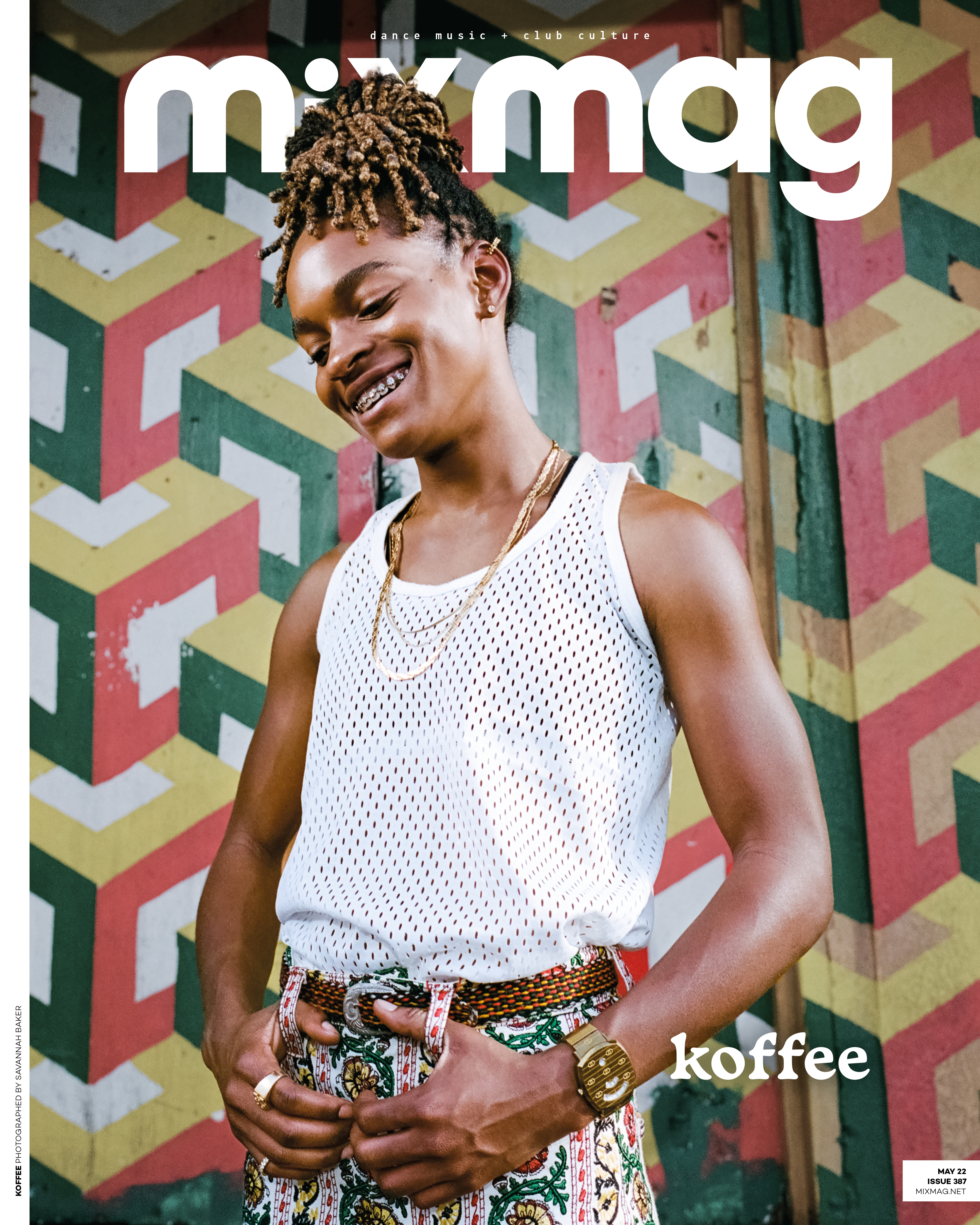
Koffee was gaining traction and confidence from a string of school shows, and the guitar she got her hands on at 12-years-old would eventually determine her destiny.
“When I started going to high school, I found out about the ‘guitar club’ and was very intrigued by it. I made friends with one of the older/more senior members, and he gave me a very small one that he played when he was a kid.” That evening, Koffee went home and started learning the chords of her favourite songs by Protoje and Chronixxx by ear.
In 2017, the self-taught guitarist uploaded a tribute song called ‘Legend’ of her playing that same guitar on YouTube, with only the intention of showing love to a national hero, Jamaican sprinter Usain Bolt and went to bed. By the time she woke up, Bolt had reposted the video and shared her talents with audiences that were instantly captivated, catapulting Koffee towards global fame.
Read this next: Koffee drops first track from her debut album, 'West Indies'
Things were moving at a fever pitch, but Koffee admits it didn't really hit home until her most significant musical influence was on the line. “My inbox was a commotion. The top people in the industry were blowing up my DMs, saying they wanted to work with me. But one particular producer hit me up and explained that he had a riddim that other artists were a part of and wanted me on it. We do that as a part of our culture musically here in Jamaica, where we have one beat/riddim, and we'll have seven artists on it. Some of the artists he mentioned involved were big, and he wanted me! So that's the moment I was like, ‘Yo! You know what, this is crazy!’” she beams. The track she's referring to is her debut track ‘Burning’, her contribution to Upsetta Records' ‘Ouji Riddim’ mixtape which also starred the likes of Busy Signal and Luciano.
Another early musical milestone came from her first video for ‘Toast’, her breakout smash hit. It featured Protoje and Chronixx, two of the best in Jamaica to ever touch the mic (and two of her most loyal supporters). “There are a lot of accomplishments that people know about, but that moment for me was the most sweet. That was pretty, pretty, pretty mad. To be honest, that was probably the biggest thing to happen to me in real life. I would say Proteje is my biggest musical influence, even today. I know all of his songs. I'm a fan of the way he does his music, not just the sound but the things he says.”
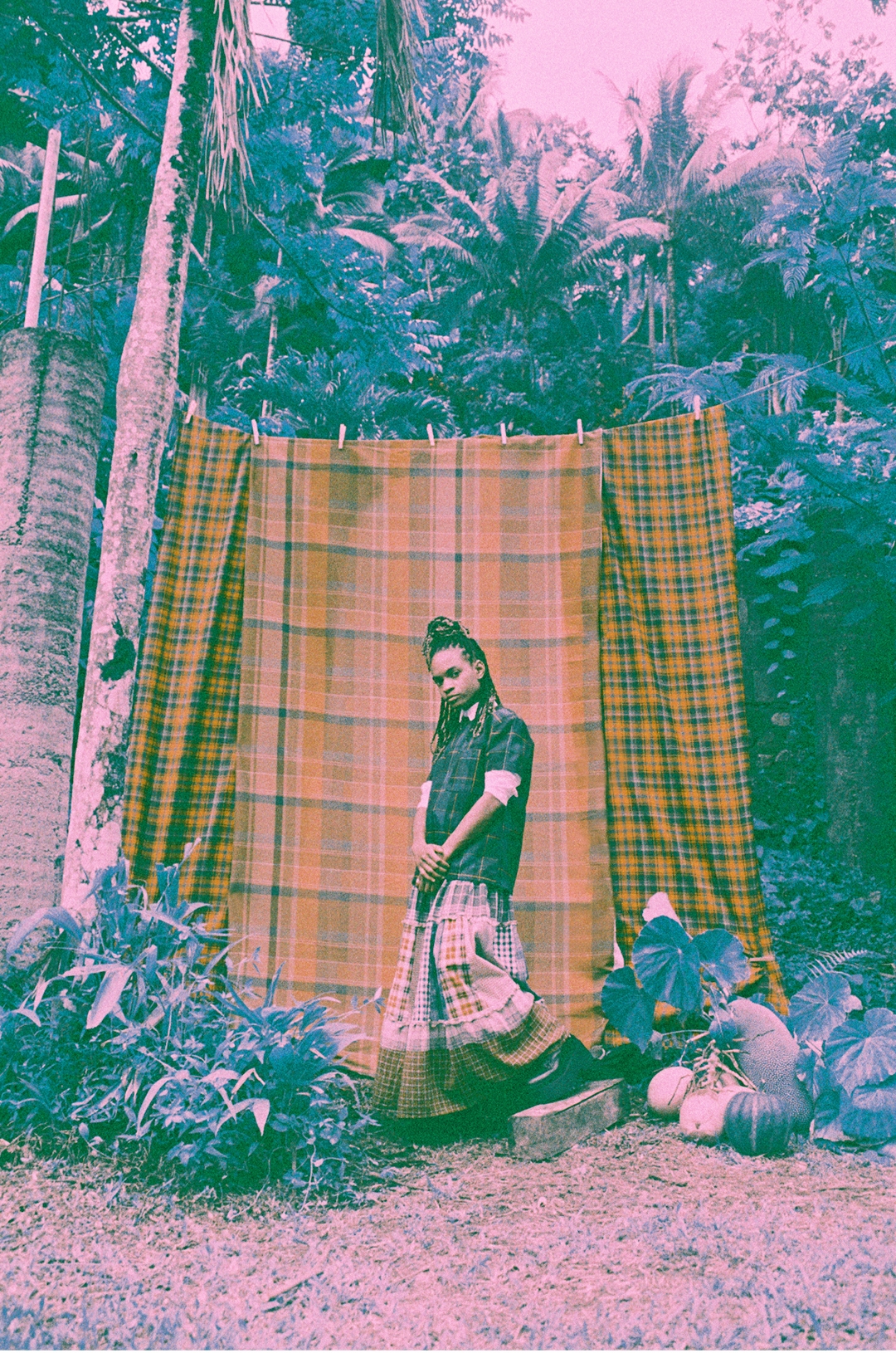
Koffee mirrored her musical mentor and laid down lyrics with fire far beyond her years from day one. At 17-years-old, she proved her boldness to confront topics many of her teenage peers couldn't. By 18, she sings about pursuing a peaceful life on her ‘Rapture’ EP while witnessing the fallout of poverty, corrupt politics, governmental neglect of the youth, and violence in Jamaica. Few expected someone at such a tender age to be singing music that was so relatable, raw and real. She caught the attention of Jamaicans island-wide and, not long after, the international masses.
The EP showcased the versatility of her skillset. The stickiness of her hooks had dirt and sugar worthy of multiple "lick backs" or rewinds. ‘Rapture’ was a bold boast, 'Toast' and 'Throne' were sweet, while her exhilarating cadence on ‘Raggamuffin’ spitting lyrics over the classic real rock riddim one of the most revered tracks on the island still.
'Toast' (co-produced by Walshy Fire of Major Lazer) has clocked more than 200 million views and landed the EP at the top of the Billboard charts. It became the summer anthem for Jamaicans and was blasted by the likes of Rihanna and Barack Obama.
The meaning behind Koffee's sun-soaked banger reflects how deeply rooted Koffee's music is for her. Heavily impacted by hearing about the devastation of the Haiti earthquake in grade school, Koffee wrote ‘Toast' during a visit there in 2018, reflecting on her burgeoning success. “Visiting Haiti was surreal for me; I was thinking about how far I have come in music, was feeling very grateful and just giving thanks,” says Koffee. “This song speaks about the moment when my life changed, and the passion that I wrote the song with is what's translating to other people I think when they hear it.”
As a self-titled 'sing-jay' when it comes to her rapid-fire rap and 'toasting' capabilities, Koffees credits legendary Jamaican DJ Super Cat. “I got into melodic rap, but I wanted to speed it up. Super Cat was one of the original DJs who set the pace for what I do now. I don't remember exactly how old I was when I heard him, but I was very fascinated by his flow and trying to sing over the song, not even knowing the meaning of the words he was using,” she laughs.
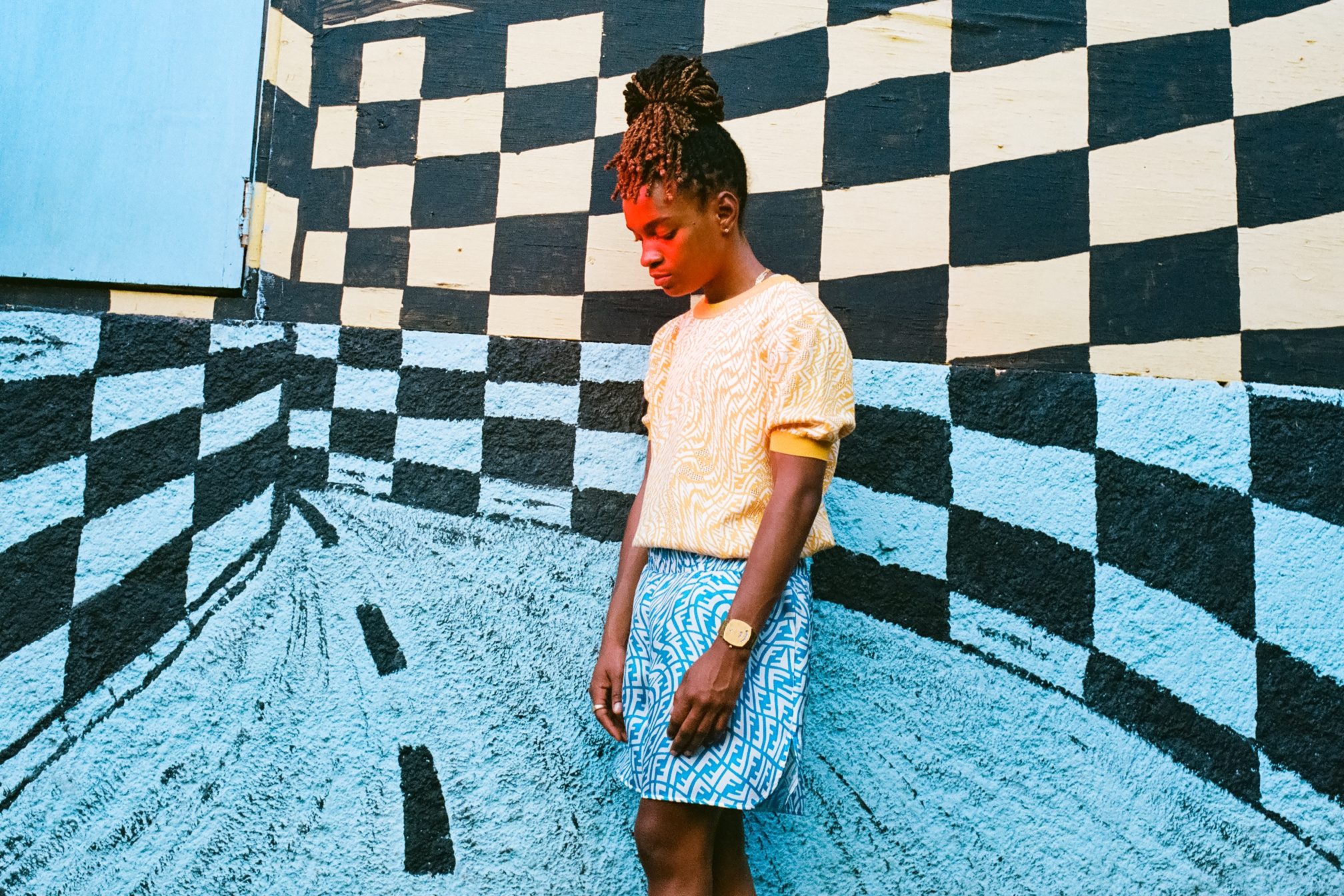
When pressed to sum up how it feels to know she's inspiring the next generation of Jamaican artists, Koffee shares: “The biggest takeaway from all my success is being able to give my country something to brag about. It feels great to know I'm inspiring others because I feel like that is part of my main purpose in life. Especially kids, youths and people closest to my age, that's the coolest part. When people see me on the road, they will play their songs for me.”
“Do you know what? I was at a karaoke thing the other night in Kingston, and somebody was singing ‘Raggamuffin’…WORD-FOR-WORD! The whole place was on fire. Everybody was making so much noise! It feels really, really good to see someone else doing my music. Sometimes it's even surreal because I can still see myself in their position singing to my favourite artists.”
Koffee has been no stranger to collaborating with her idols throughout her come-up. She's shared stages with Cocoa Tea, WizKid, Protoje and Chronixxx at the iconic Tuff Gong Studios no less, and laid out guest verses with John Legend and Gunna.
On ‘Gifted’, Koffee linked with globally hyped producers such as Canada's Frank Dukes alongside homegrown Jamaican talent such as iotosh, crafting the huge crossover anthems ‘Pull Up’ and ‘West Indies’ that she co-produced herself. “I was more involved in sharing my ideas. My band also helped me compile the album. These guys are really at the top of their game when it comes to reggae. After ‘Rapture’, I had more time and resources to decide my direction. So when I was creating the project, it came naturally to me what I wanted to achieve with the music and how I wanted it to sound. I didn't hold back the ideas. I owe so much to the producers and my band for their expertise. I feel honoured when I listen back to these songs, perfectly arranged and beautifully done, feeling like, ‘Yeah, I am gifted.’”
Read this next: Introducing GYAL TIME, a celebration of women dancehall dancers
Off the back of a rise like Koffee's, she could have had her pick of international stars to bless her debut album, but she chose to lean into the rich musical heritage of Jamaica. “It's a pleasure for me to see people from different cultural backgrounds come together to make one beautiful thing. I still managed to do that on ‘Gifted’ and mix it up, but I wanted to keep this album a little bit homey in terms of including a lot of reggae and local talent and making it true to the Jamaican culture and heritage. A quote from Martin Luther King says, ‘In Jamaica, I feel like a human being.’ And it's because of the way the people relate to everyone and make you feel. There's a certain warmth to it that I love,” Koffee explains.
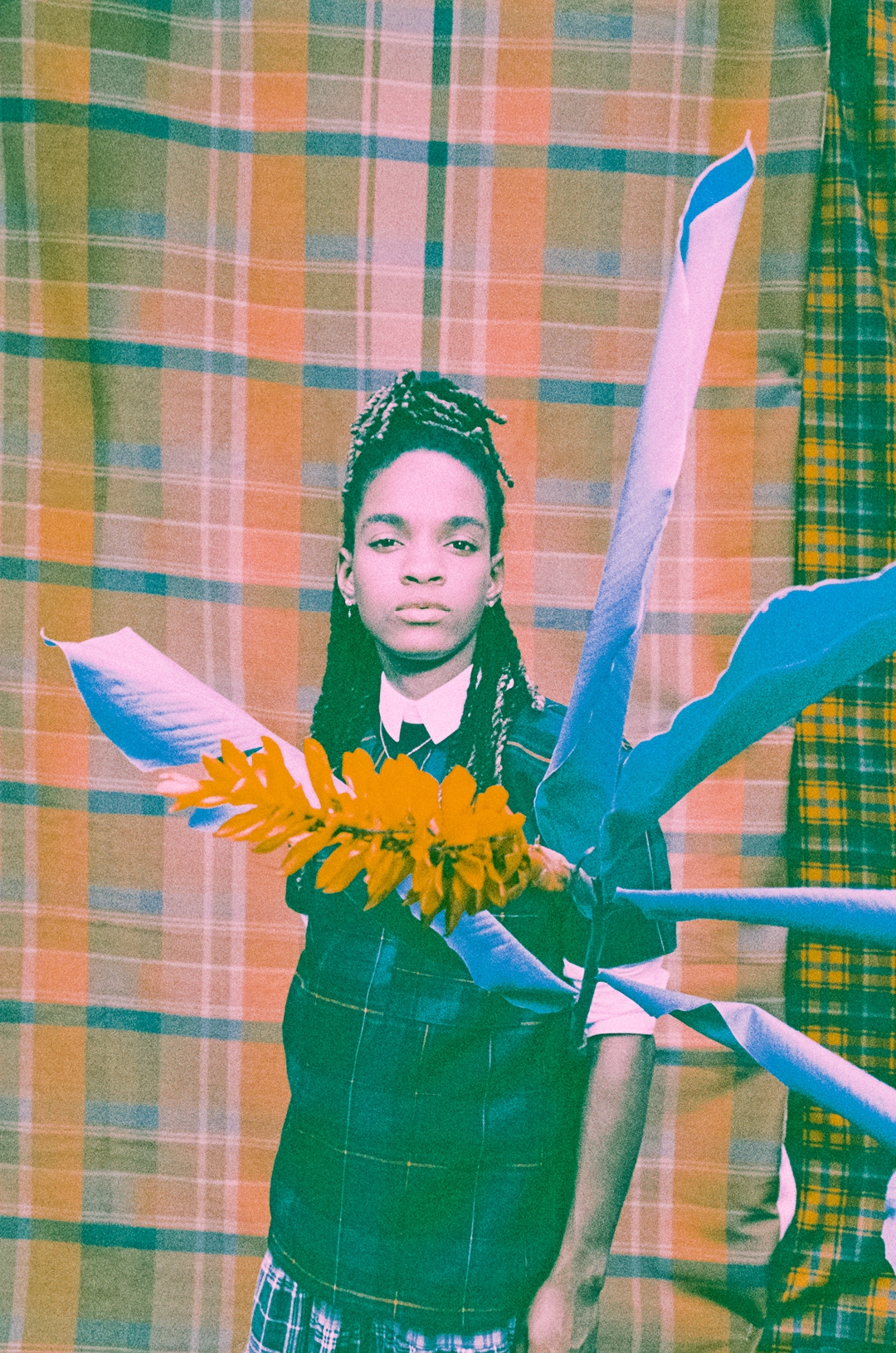
‘Gifted’ is certainly that. Her classic reggae track ‘West Indies’ is a nod to the rich sonic aesthetic and soul of the Caribbean. It features a personally cleared Lionel Ritchie sample of ‘Celebrate’ with Koffee singing the line ‘Fiesta Forever’. While ‘Lonely’ shows her take on lovers rock and is inspired by one of her favourite early artists, John McLean. She’s also testing out a cover of his track ‘If I Gave My Heart to You’ in her live shows, alongside the occasional appearance of her rendition of Burna Boys' Ye' (both unreleased but possibly pending she hints).
Many artists could lose themselves in the fame and hype that Koffee has racked up, but she's quick to confirm she has no interest in succumbing to the industry spotlight or forgetting where she came from.
“I still see Usain Bolt, having Jamaica on his career and his journey, and still never changing. He's always remaining positive no matter how successful he is,” Koffee says. “I feel really happy that I’m able to do what I'm doing with my music for Jamaican culture. The people who know me personally know I’m not somebody who loves the limelight and being in the spotlight, but having the opportunity and the platform to push a good message for my peers and uplift others means the world to me. So I make the best of it every time.”
'x10' , the opening track on ‘Gifted’, begins with a sample of Bob Marley, one the most permanent fixtures and pivotal players in Jamaican music, singing ‘Redemption Song’. It's Koffee's most personal track to date. “That song has the most meaning to me on ‘Gifted’. I speak about giving thanks, which is true to me and true to my brand. It's very personal because I speak a little bit about the more vulnerable feelings of my career and having my mom there for me in times of doubt. I just try to make my mom feel the impact of what she's done for me, and God too, sustaining me and giving me the energy to continue.” Koffee takes a breath and goes on. “I came up with ‘x10’ after a show in Antwerp. I was listening to Bob Marley's ‘Redemption Song’ over and over again on repeat, alone in my room. In Jamaica, we all experience his music from a young age, one way or another. I laid these lyrics down that night as a voice note in 2019, and on the other side of the pandemic, that message is still so true. It means even more to more to be pushing out a message in a time when people maybe still need to hear it.”

Later in the album, Koffee gets into her feelings on love song ‘Run Away’. “‘Run Away’ is probably one of the ones I'm looking forward to performing the most. My band and I were sat by the seaside at a writing camp on the beach in Ocho Rios, a port town on Jamaica's north coast. ‘Run Away’ was recorded completely live in one take. It's about love, and I'm saying, ‘You must come run away with me in the ocean’ So…..are you gonna come?" Koffee laughs.
Koffee harks back to her signature blend of conscious reggae and politically-geared music from ‘Rapture’ on 'Defend', which she worked with Kendrick Lamar on in the studio, as she did on her favourite track ‘Shine’. “The first part of ‘Shine’ tells a story, a real ghetto story: 'Sun's rising, gun violence, police sirens'—that's a regular day for youths. This song speaks to them, especially with the Jamaican and Caribbean scene right now pushing this vibe of a senseless crime,” Koffee says. Going more in-depth about Apple Music, Koffee stated: “I know one song won't change everything, but all I have is my voice, so, that's what I'll use to speak out. I might not be affected by certain injustices directly, but living in a place like Jamaica, you can't avoid the truth of it. There are youths here that have grown up with violence right on their doorstep, and I'm not just representing myself now—I also must speak out for them.”
Read this next: Usain Bolt is releasing a dancehall album
When asked about how important it is for her to convey a message in her music, Koffee comments confidently: “I intend to keep my music positive and bear in mind the weight that my words will have on the imagination. But having a message for me is very, very important. I believe we shouldn't waste any opportunity to help our fellow humans learn from the experience of life. Even though there's a lot of frivolous music being made already, so I don't need to say to myself, ‘Wow, the music needs to be so fun and light that it doesn't talk about anything.’ I know there's a lot of people who do that, there's all kinds of music out there that gets you that result. But for reggae especially, there is an importance for passing on positivity and not just great phrases, but ideas that should be shared and perpetuated.”
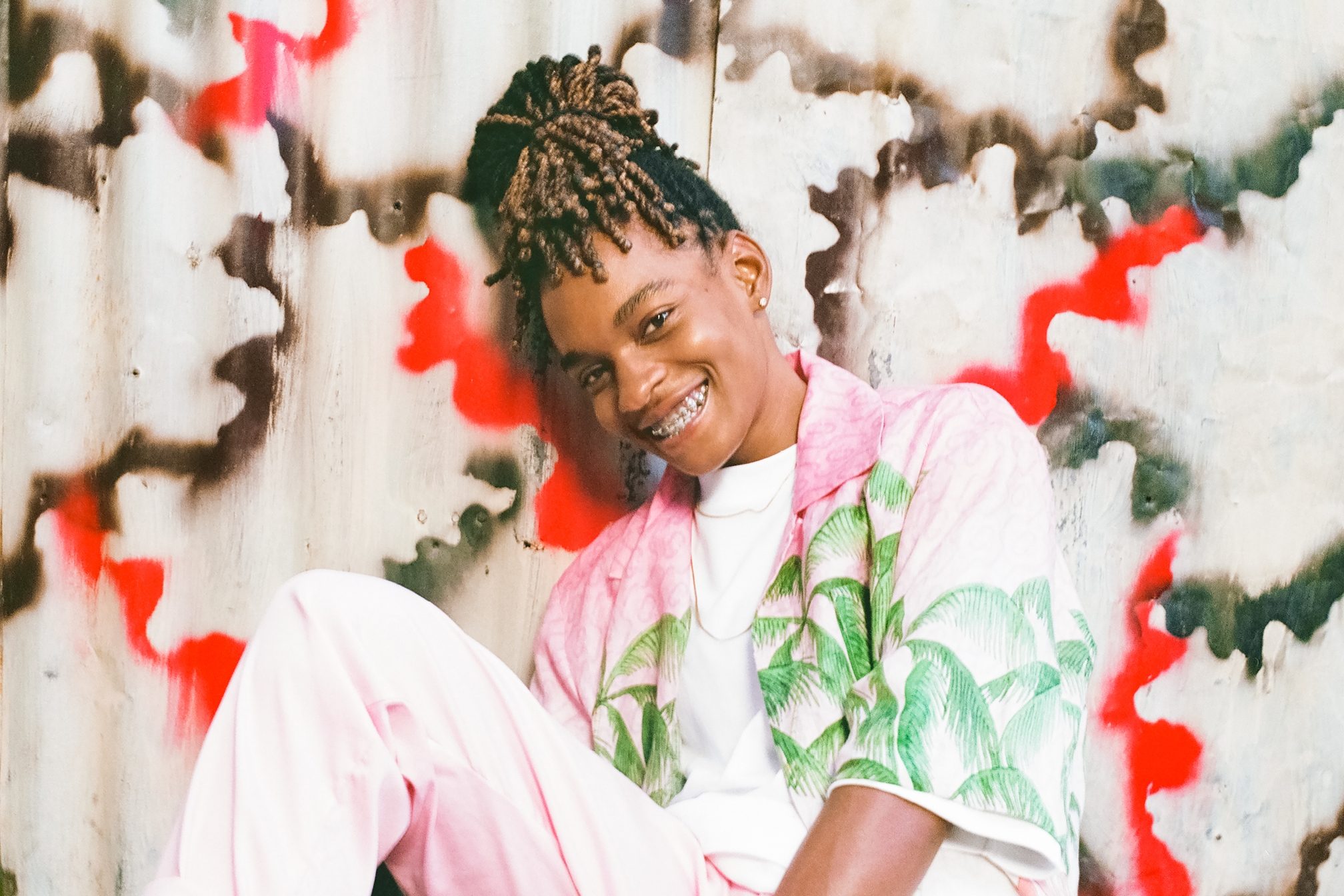
Koffee’s connection to the UK is as closely intertwined as she is to her lyrics. Proof of how hard people bump her music over here and how much it resonates was palpable across East London the entire weekend she was last in town. On the Friday night you could hear Koffee’s name down Dalston as fans rushed to her highly anticipated live gig. On the Sunday while having brunch at Cotton’s jerk joint in Shoreditch, the couple beside me passed selfies with Koffee in a corner shop, gushing about how she’s reignited the reggae and dancehall scene.
“The only thing I would fight about the UK is the cold and that’s it. I love everything else,” Koffee jokes, before getting serious. “The vibe is very warm and welcoming and people are very in tune with music and they show a lot of love when they hear it. The scene in the UK is very real and very alive. I always say the UK was one of the first places where I got this kinda ‘vibe’ when I started performing in front of large groups of people. I’ve always recieved a lot of love so this is like my second home.”
In the past Koffee’s teamed up with UK-based band The Compozers for Tiny Desk. She jumped on ‘Repeat’ a track with J Hus on ‘Big Conspiracy’ and recently worked with fellow GRAMMY-winner and British-Ghanaian producer JAE5 on ‘Shine’ and ‘Pull Up’. “I had a session with JAE5; we had just recorded ‘Shine,’ and we both weren’t done. He’s playing me more and more beats, trying to get another one in—and I knew I would find the right lyrics once we found it, the right one was ‘Pull Up’. That was a really fun experience for me.”
Koffee makes it clear that she possesses the ability to let her hair down in her music, especially when she’s talking about the other layers to her visual aesthetic and passions outside of music, like her penchant for expensive cars.
Car references are laced all over her records. In the video for ‘Pull Up’ she tears around a drift track in Manchester. When I tell her I became fixated by an underground London drift scene in 2017 when she broke out and lost myself for a summer following them around taking pictures, as well as having my license taken away three times for speeding, Koffee’s voice electrifies. “I love to drive!!! Thank you for noticing that! Even on ‘Lockdown’ you can hear me singing ‘Mummy, me go NASCAR / Pull up in a fast car’. I should’t say unless the police read this and come looking for me but I like driving fast as well. My favoruite place to drive is between Kingston and the Ocho Rios.”
“I would love to try drifting but I’m very small, I’m only 5 foot tall so in a lot cars I can’t naturally see over the wheel! I’d have to put some REAL safety measures in place.” There’s more. The latest track she dropped called ‘Vroom’ is a posse cut with the UK’s own Idris Elba, American rapper Lil Tjay, Nigerian-American singer Davido, and Nigerian singer Moelogo. ’Vroom’ is produced by prolific UK trio FaNaTix and is part of a collection of music inspired by the Playstation-exclusive driving video game ‘Gran Turismo 7’.
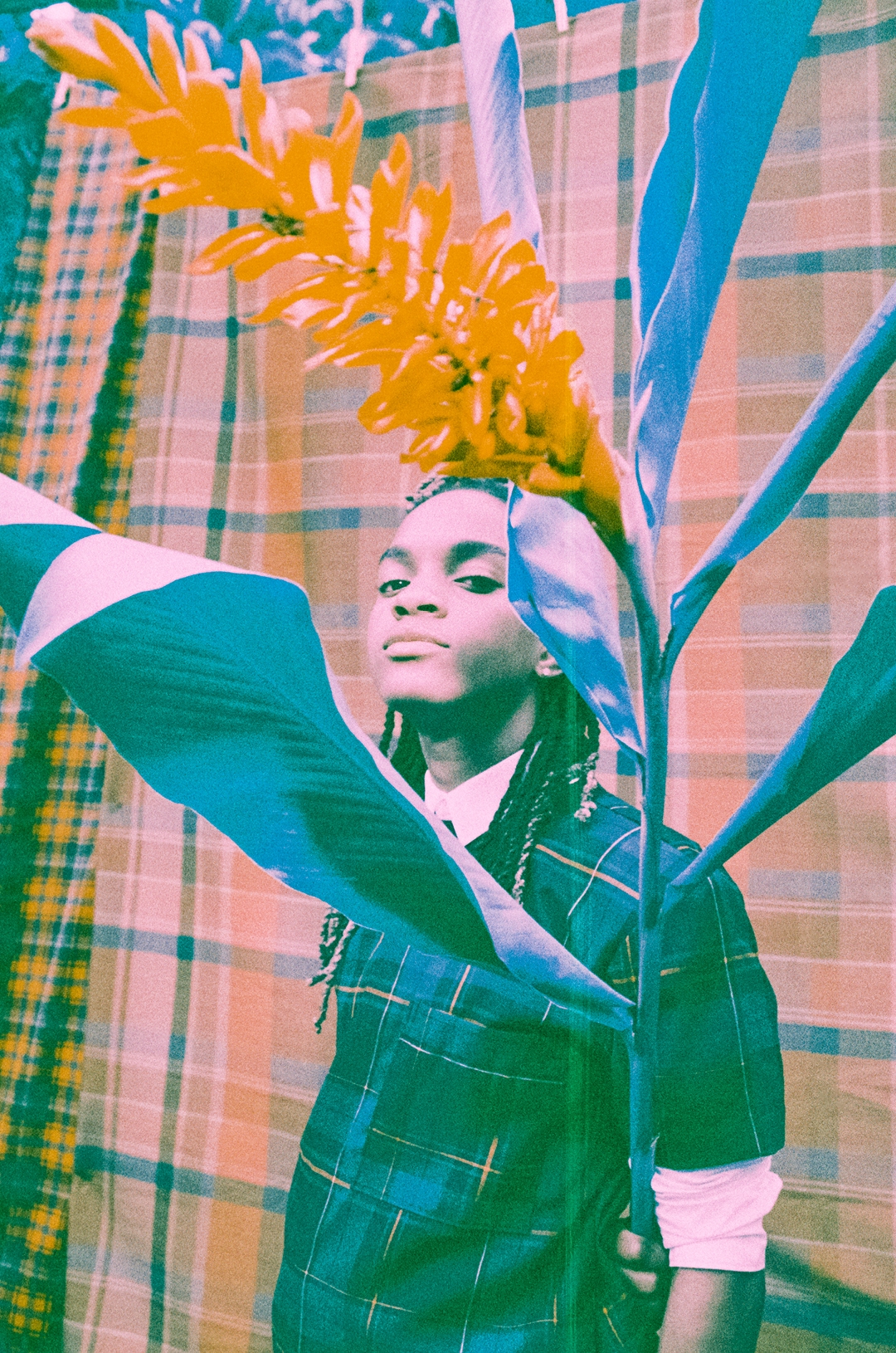
When the conversation shifts to what the future holds, Koffee is far less candid. She swerves the well-known rumour that she’s writing music for Rihanna’s reggae album (Rihanna previously sang a honeyed version of ‘Toast’ on her IG), but notes she dreams about linking with US producer Metro Boomin and British-Ghanaian record producer Juls, and says outside of guitar and piano she’d like to learn sitar or work that into her sound. Then lastly shares she’d be up for writing music for Beyoncé.
She’s not far off, having already worked with Jay-Z at the end of 2021 by recording the title song of the Hollywood blockbuster he produced The Harder They Fall live on the set of the film. “All I can say about the new music I have in the pipeline is don’t expect anything. Because whatever you expect, it’s going to go far beyond that.”
Read this next: Koffee and Daniel Ceaser link up on new 'Cyanide' remix
As we close, I ask her what her advice would be for the new-gen rising up fast behind her and Koffee answers in a way only an artist as famous and yet down-to-earth as her could: “If a young artist had the chance to come up to me in Kingston I would probably take them on a little journey. You know, I would bring them into my space and show them more in-depth, day-to-day things and advice to help them stay grounded. But If I didn’t get the chance to meet them in person I would say ‘Really, really believe in yourself. Don’t just say that you do, but really, really do. Keep working on yourself, because when you do that things can only get better. Put your best into everything you do’. The message I would like to pass on is that one, we're all gifted – because life is a gift. Two, it’s said that everyone has a talent, and I think we should all tap into our own talents. Once you have life you have the ability to tap into your gift; you should do it because it can take you places. I think my life has been an example of that.”
Koffee's 'Gifted' is out now via Sony/RCA.
Tracy Kawalik is a freelance music and dance journalist, follow her on Twitter


